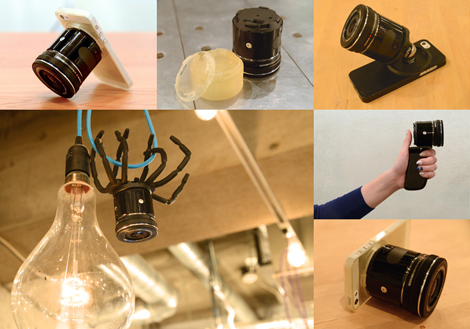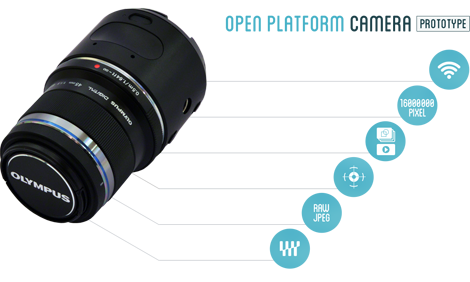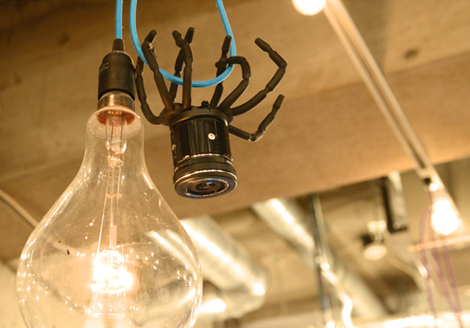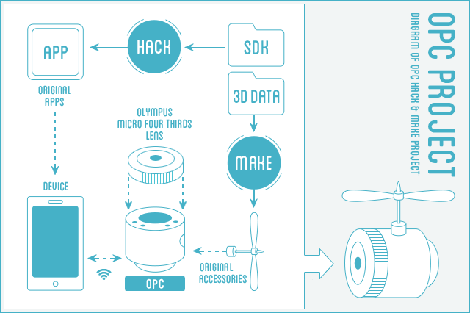
Olympus’ Open Platform Camera project in Japan has given hackers the power to make their camera personal, exciting, or just a little bit weird
At this year’s giant Consumer Electronics Show (CES) in Las Vegas, one of the most pressing questions was ‘how can brands encourage makers and hackers to buy into their brands?’
The big brands want to cash in on it, but with a few minor exceptions most have struggled – fearing that they might give too much away.
In Japan, it appears that camera maker Olympus has blinked first, launching its Last year, Olympus launched its Open Platform Camera project in Japan, giving its official backing for hackers and makers to modify its cameras.

The well spec’d prototype lens-style camera that forms the base of the project
Included in the launch was an official Software Developer’s Kit (SDK) and 3D design data, all to base around a prototype lens-style camera, with a 16-megapixel, 4/3″-type, Live MOS image sensor as used in the company’s Micro Four-Thirds cameras.
The lens mount is still a proprietary Olympus part, meaning customers will still need to buy its add-on lenses from the company, and it’s not clear how far the SDK will let users into the digital workings, yet already it is enough to get the camera and maker communities in Japan interested.
The camera model is available as an STL file, and from there, with a bit of jiggery pokery, you can create your own larger camera body to encompass a wifi-connected smartphone too, or whatever else you wish to hook it up to – the possibilities are amazing.
Built in to your own drone or robot for amazing remote shots, or safety casings for more extreme purposes, the camera still be easily swapped into a more standard body for more sedate uses.

With the STL file, you can model and 3D print a structure for your camera for whatever you want it to do
This needn’t be a mere maker project knocked out on a desktop FDM 3D printer for fun FDM, but could become a fully fledged design industry – custom 3D-scanned ergonomic grips, luxury materials, the full works. It’s fair to say that this opening up of ingenuity to all levels excites us!
Olympus is not just stopping there, having launched a number of OPC Hack&Make hackathons, building a devoted community around the project that most marketing men would eat their own leg to achieve. There’s old camera enthusiasts mixing with young hacker-types.

Both physical and digital hacks can be done through the official developer kits that are free to download
With the camera market suffering in recent years, it must be hoped that by letting the consumer decide that they want to use the camera for then Olympus will be able to feed this back into its own designs and lure back customers.
Exactly the type of thing the corporate chiefs at CES were searching for.






